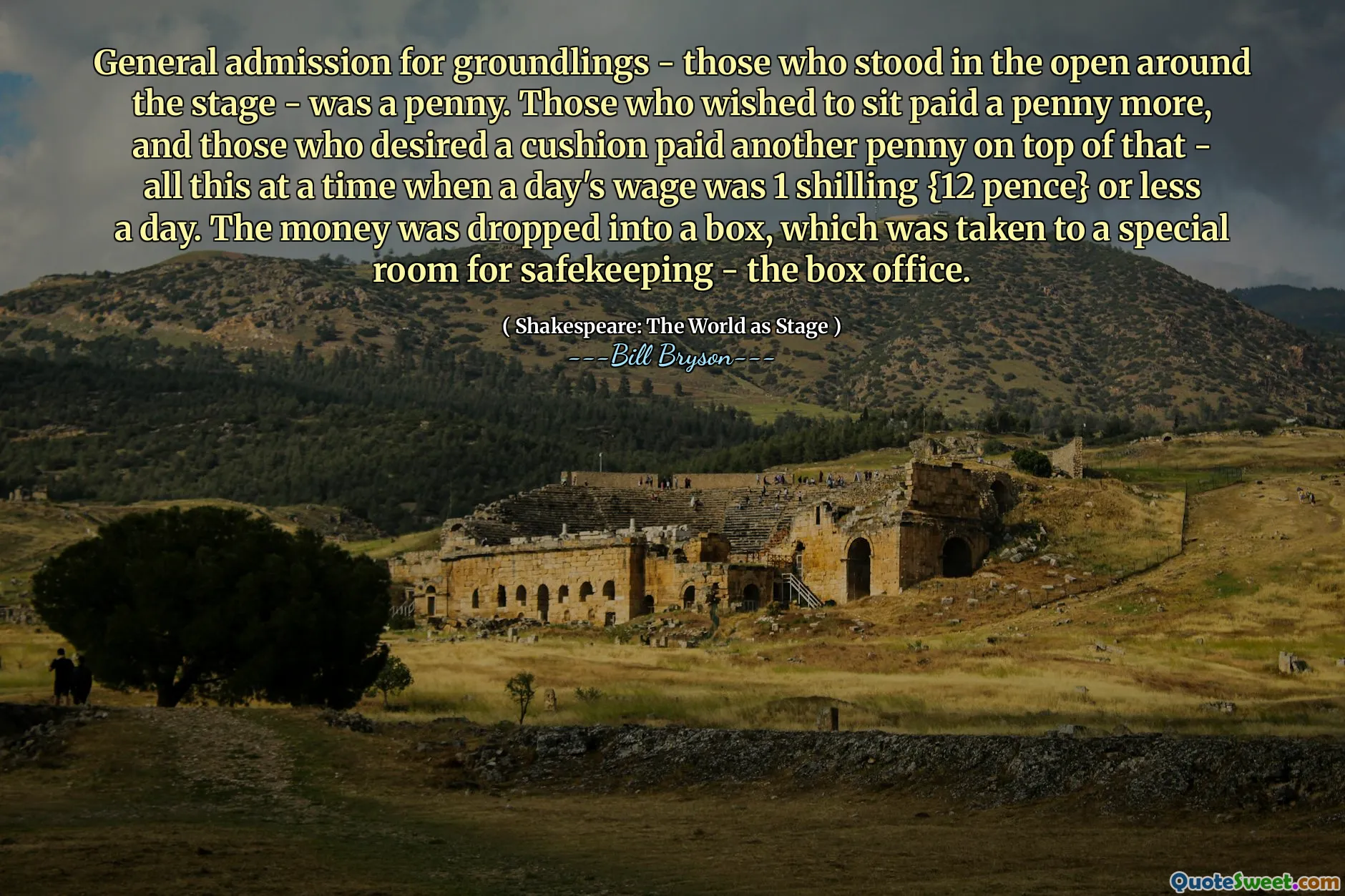
General admission for groundlings - those who stood in the open around the stage - was a penny. Those who wished to sit paid a penny more, and those who desired a cushion paid another penny on top of that - all this at a time when a day's wage was 1 shilling {12 pence} or less a day. The money was dropped into a box, which was taken to a special room for safekeeping - the box office.
This quote wonderfully captures the social and economic nuances of Elizabethan theatre-going culture, particularly as represented in Shakespeare's time. It illuminates a tiered system of access to entertainment that hinged delicately on one's financial capability. The 'groundlings,' or the poorest segment of the audience, had access to the plays simply by standing in the open, paying a mere penny — a stark contrast to today's complex ticket pricing models, yet reflective of the persistent relationship between money and access. The differentiation between standing, sitting, and even having the comfort of a cushion shows how even within the shared space of a playhouse, social stratifications were evident, codified literally by the cost of entry and physical positioning. Furthermore, the detail about the day's wage provides important economic context: a penny wasn't merely a trivial sum; it was a carefully weighed expense for many, indicating how valued this cultural experience was. The mention of the 'box office' serves as an intriguing etymological tidbit, revealing how common practices from centuries ago ripple forward into our modern lexicon. This quote not only informs us about Shakespeare's theatre practices but also encourages reflection on how economics influence cultural participation. It nudges readers to consider how access to art has historically been shaped by economic realities and how these legacies persist, prompting broader conversations about inclusivity and the democratization of the arts.





